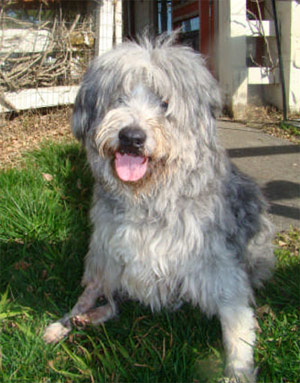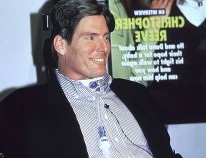Quality of Life for Living
There are only two ways to live your life. One is as though nothing is a miracle. The other is as though everything is a miracle. –Albert Einstein
The BrightHaven Perception
BrightHaven’s hospice care is very much aligned with hospice care for humans, where love, comfort, dignity, quality of life and also quality for dying are of the highest importance, and the spiritual aspect of the journey is highly honored. We are privileged to have provided hospice care for and shared the dying experience with over 600 animals who taught us so much about living and dying well.
Measuring quality of life is often used to help make hospice care and end-of-life decisions regarding an animal or a human companion. When it comes to animals, as people try to decide whether to euthanize, they often concentrate on quality of life. BrightHaven’s focus is simply a day-by-day mission to bring joy and healing to help the animal live as fully as possible. Therein lies the difference…
In the early years of BrightHaven, many animals were euthanized as we, or our veterinarians, determined “it was time” to end their suffering. Our vision and views have vastly changed since those days as we have reached a greater understanding of the circle of life, death and beyond by listening to the wisdom of our animals. And so perhaps, then, the basic interpretation of quality of life should also include the discussion of natural dying in addition to euthanasia. Suffering and will to live are also important considerations.
A scale for better understanding of how to measure the quality of life has been developed by Dr. Alice Villalobos, DVM, DPNAP. The scale comprises a list – “HHHHHMM” – which stands for hurt, hunger, hydration, hygiene, happiness, mobility, and more good days than bad days. A score above 5 on most of these issues is acceptable in maintaining an end-of-life program. Dr. Alice very rightly says, too, that each animal’s situation needs an individual, kind and supportive approach.
While following a scale can be tremendously helpful in your understanding, you are urged to add another “H” to that list – that of “heart” – and following your own! It may well be time to consider euthanasia, but it may also be a time to become proactive and explore other options. Many veterinarians are not educated in animal hospice care or how to support the dying process with regard to pain management and quality of life. Therefore, we urge you to pause to investigate the possibilities for an alternative route for care.

Poor quality of life does not necessarily translate to “I want to die.” Life is precious, and we all try to keep it for ourselves as long as possible. We know the will for survival is huge. To our thinking, this is an area where the worlds of animal and human hospice could better align. When our animals’ quality of life does not match our wish for them it is often hard for humans to bear; however, perhaps one should try to think beyond one’s own discomfort.
We have often heard said the words, “How can you see them lying there suffering, day after day?” Very frequently our answer is, “Are you sure of their suffering – or is it yours?” Very often suffering proves to be in the eye of the beholder and based in their deep-rooted fear of death.
Many older humans, and often younger ones too, may not have what we would deem a good or great quality of daily life, and yet we do not euthanize them – we simply seek to bring them more pleasure, and very often can and do.
Some people who may appear to have a challenging quality of life choose to actively express their own joy and bring it to the world – here are just two examples:
Christopher Reeve

Christopher D’Olier Reeve (September 25, 1952-October 10, 2004) was an American actor, film director, producer, screenwriter and author. He achieved stardom for many acting achievements but became most well-known for his portrayal of the fictional superhero Superman. BrightHaven President and Founder Gail Pope is proud to say that she often met Chris in the course of her career assisting VIP passengers at London’s Heathrow Airport.
On May 27, 1995, Reeve became a quadriplegic after being thrown from a horse in an equestrian competition in Virginia. He required a wheelchair and breathing apparatus for the rest of his life. Christopher lobbied on behalf of people with spinal cord injuries and for human embryonic stem cell research. He founded the Christopher Reeve Foundation and co-founded the Reeve-Irvine Research Center.
It’s hard to imagine what it must be like to have your life forever change so drastically in the blink of an eye…
Nick Vujicic

Meet Nick Vujicic, pronounced “Vooy-cheech.” Born in 1982 in Brisbane, Australia, Nick came into the world with neither arms nor legs and without any medical explanation or warning.
Picture what it might be like getting through your busy day without hands or legs. Imagine your life without the ability to walk, care for your basic needs, or even embrace those you love…
Nick made the move from Brisbane, Australia to California, where he is the president of an international 501(c)(3) nonprofit organization, Life Without Limbs. This inspirational quote appears on the organizations website: “If God can use a man without arms and legs to be His hands and feet, then He will certainly use any willing heart!”
Since his first speaking engagement back when he was 19, Nick has traveled around the world, sharing his story with millions of people, speaking to a range of different groups such as students, teachers, youth, business people, entrepreneurs, and church congregations of all sizes. He has also told his story and been interviewed on various televised programs worldwide.
The quality of life depends on the power of love and quality and quantity of happiness.” –Debasish Mridha, M.D.
Animals and Quality of Life
Animals often live for years in similar situations. No, their quality of life may not be what we most wish for them, but if they can find joy or love in their days, then who are we to take precious life away from them?
We have often heard the words, “How can you see them lying there suffering, day after day?” And our answer is, “Are you sure of their suffering – or is it yours?” Frequently suffering proves to be in the eye of the beholder and based in deep-rooted fear of death.
BrightHaven has many examples of animals with poor quality of life as seen from our own perspective who have demonstrated extraordinary joy in daily living. Here are just two, Tim and Jackie. We encourage you to read their stories as we believe that the love, delight and passion for life as demonstrated by these animals will help broaden your perspective.

Tim
Tim suffered a broken back when only two weeks old. He lived his life to the very fullest, enjoying each and every day. He scooted as fast as most could walk or even run. There were times when bladder infections came and challenged his life, but he never gave up his will for survival and his capacity for love and joy. Tim died at the age of six years after a short but absolutely complete and happy life…Read Tim’s Story

Jackie
At the age of sixteen, Jackie became bedridden for almost six years after a flea treatment caused neurological damage. Jackie could neither sit up nor walk. She suffered severe tremors throughout her whole body and had to be supported to eat her food – which she adored! Called a guru by many, Jackie embodied poor quality of life but amazing joy and will to live…Read Jackie’s Story
Quality of Life for Dying
BrightHaven places great emphasis not only on quality of life, but also on quality of dying and death. We believe the way in which quality of life is measured should change as the hospice journey progresses towards dying. That’s where the helpful Quality of Dying Checklist comes in.
We also understand that a being is fully alive until dead and must be treated accordingly, with dignity, compassion and a commitment to maintaining that being’s comfort.
Many veterinarians are not educated in the options for animal hospice care, as well as how to support the dying process with regard to pain management and quality of life. Therefore, euthanasia may be the first recommendation. We encourage you to pause to explore other options, such as natural dying in addition to euthanasia.
And in the end, it’s not the years in your life that count. It’s the life in your years. –Abraham Lincoln
Knowledge reduces fear and increases confidence, and conscious decision-making may minimize future regrets. We invite you to explore our caregiver resources (including animal hospice education and holistic healthcare education), online learning and publications to learn more. You may also wish to book a consultation with BrightHaven President and Founder Gail Pope.



